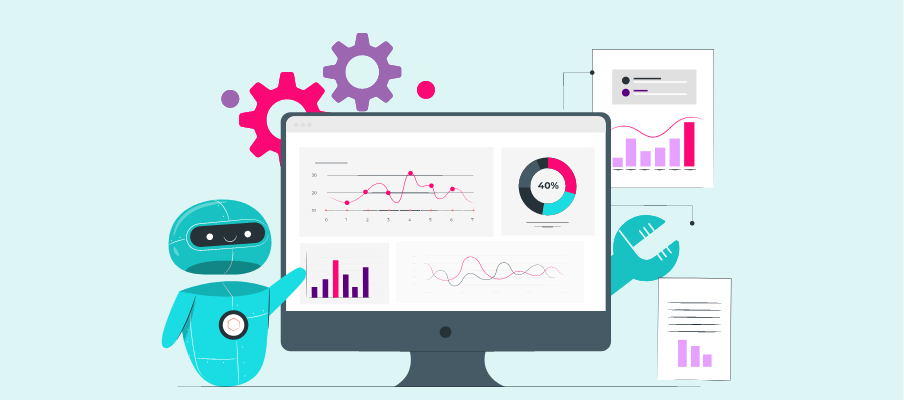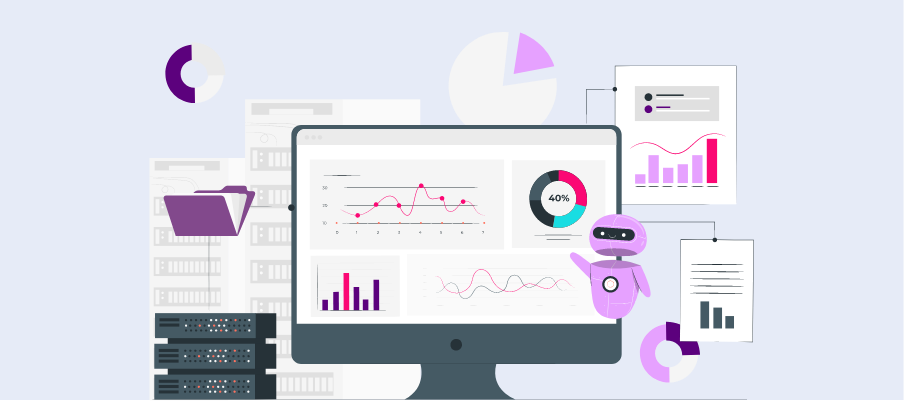The accounting industry is evolving rapidly, and one of the most significant advancements transforming the field is automated bookkeeping. Merging technology with traditional financial management processes, automation tools are streamlining time-consuming tasks, improving accuracy, and enabling firms to focus on strategic growth.
For accounting firms considering this shift, understanding the benefits of automated bookkeeping is vital. This blog dives deep into what automated bookkeeping entails and explores the tremendous value it offers—both operationally and financially.
What Is Automated Bookkeeping?
Automated bookkeeping is the use of technology—such as AI, machine learning, and cloud-based software—to streamline and manage bookkeeping tasks. These tools reduce (and sometimes eliminate) the need for manual data entry, taking on repetitive processes like recording financial transactions, reconciliation, and invoice matching.
Examples of popular automated bookkeeping tools include QuickBooks, Xero, andFreshBooks. These platforms leverage advanced algorithms to analyze, categorize, and record financial data seamlessly, substantially reducing human error in the process. Automated bookkeeping not only saves time but also provides businesses with up-to-date information, ensuring all data is processed and organized accurately and efficiently.
The Key Benefits of Automated Bookkeeping for Accounting Firms
Adopting automated bookkeeping yields considerable advantages for accounting firms, ranging from operational improvements to enhanced client satisfaction. Here's how:
Increased Efficiency
Manual bookkeeping often involves repetitive and time-consuming tasks like data entry, payment tracking, and reconciling accounts. Automation allows these tasks to be completed in a fraction of the time. Examples of Automated Tasks are:
Importing bank transactions directly into accounting systems
Generating recurring invoices and reminders
Automating payroll runs and tax calculations
This increase in speed frees up bookkeepers and accountants to focus on higher-value activities such as interpreting financial data and formulating strong business strategies for clients.
Cost Savings
By automating processes, accounting firms can significantly cut down on the overhead expenses associated with manual labor. With fewer hours spent on repetitive tasks, you reduce staffing requirements or enable your current team to take on more complex and billable work.
Additionally, automation tools offer an impressive long-term return on investment (ROI)by lowering error-related costs, increasing efficiency, and driving better financial outcomes for clients.
Improved Accuracy and Compliance
Human-based bookkeeping can be prone to occasional errors—mistyped numbers, missed transactions, or outdated compliance knowledge. Automated bookkeeping tools, however, are designed to detect discrepancies, flag duplications, and ensure precise data entry.
Many platforms also keep track of the latest tax laws, offering real-time alerts about compliance updates. For example, Xero Tax helps businesses automate tax reporting while adhering to up-to-date regulatory requirements, giving firms and their clients peace of mind.
Scalability
Accounting firms often face challenges in managing increased workloads as they grow. Automated solutions make it easier to scale without necessarily expanding the workforce.
Scalable Solutions:
Cloud-based platforms that can store and process high volumes of data
API integrations that enable adding customized functionalities to meet firm-specific requirements
For instance, as firms gain more clients, automation tools can handle increased transaction volumes effortlessly, ensuring consistent performance.
Enhanced Client Services
With automation taking over clerical tasks, accountants gain more bandwidth to focus on delivering strategic advisory services to clients. This includes helping businesses plan for growth, improve cash flows, or prepare for market uncertainties.
Turnaround times for reports and responses to client queries are also accelerated, building stronger client trust and satisfaction.
Data Security
While data security is a common concern in the digital age, automation tools are equipped with top-notch encryption protocols and secure cloud storage solutions. Platforms such asFreshBooks and QuickBooks safeguard sensitive client data with multi-factor authentication, role-based access controls, and encrypted backups.
This ensures that both your firm and its clients can operate with confidence, knowing their financial information is secure.
How to find the best platform for automated bookkeeping solutions?
When it comes to selecting the best platforms for automated bookkeeping solutions, several options stand out for their features, reliability, and affordability.
FreshBooks
FreshBooks is a popular choice among small businesses and freelancers. Its user-friendly interface and comprehensive features allow for seamless invoicing, expense tracking, and time management. FreshBooks also integrates well with various third-party applications, ensuring a flexible and efficient workflow.
QuickBooks
QuickBooks is a robust platform suitable for businesses of all sizes. It offers advanced features such as tax preparation, payroll, and financial reporting. QuickBooks simplifies complex accounting processes and supports integrations with other essential business tools, making it a favorite among professional accountants and business owners alike.
Ziepie Books
Ziepie Books is an emerging player in the world of automated bookkeeping, offering an exceptional solution at the lowest price in the market. Despite its affordability, it doesn’t compromise on quality, providing features like real-time tracking, expense categorization, and streamlined invoice management.
Ziepie Books is ideal for small businesses or startups looking for a cost-effective yet reliable platform to handle their bookkeeping needs.
How to Get Started with Automated Bookkeeping?
Are you ready to introduce automation into your bookkeeping processes? Here's a step-by-step guide:
Evaluate Your Needs: Assess your firm's requirements and identify which aspects of bookkeeping are proving most time-consuming.
Research Tools: Consider tools like QuickBooks Online, Xero, orFreshBooks. Compare their features, pricing, and integrations to find the best fit.
Begin with Core Tasks: Start using automation for specific, manageable tasks like bank reconciliations or recurring invoices.
Train Your Team: Leverage training programs offered by software providers to ensure your team is comfortable using the tools.
Monitor and Optimize: Regularly evaluate the performance of your automated system and optimize processes as needed.
Set Clear Automation Goals: Define specific objectives, such as reducing manual errors or saving time on repetitive tasks, to measure the success of automation.
Ensure Data Security: Choose tools with robust security measures to protect sensitive financial information.
Seek Professional Advice: Consult with an accountant or automation expert to ensure you're implementing the best practices for your business.





